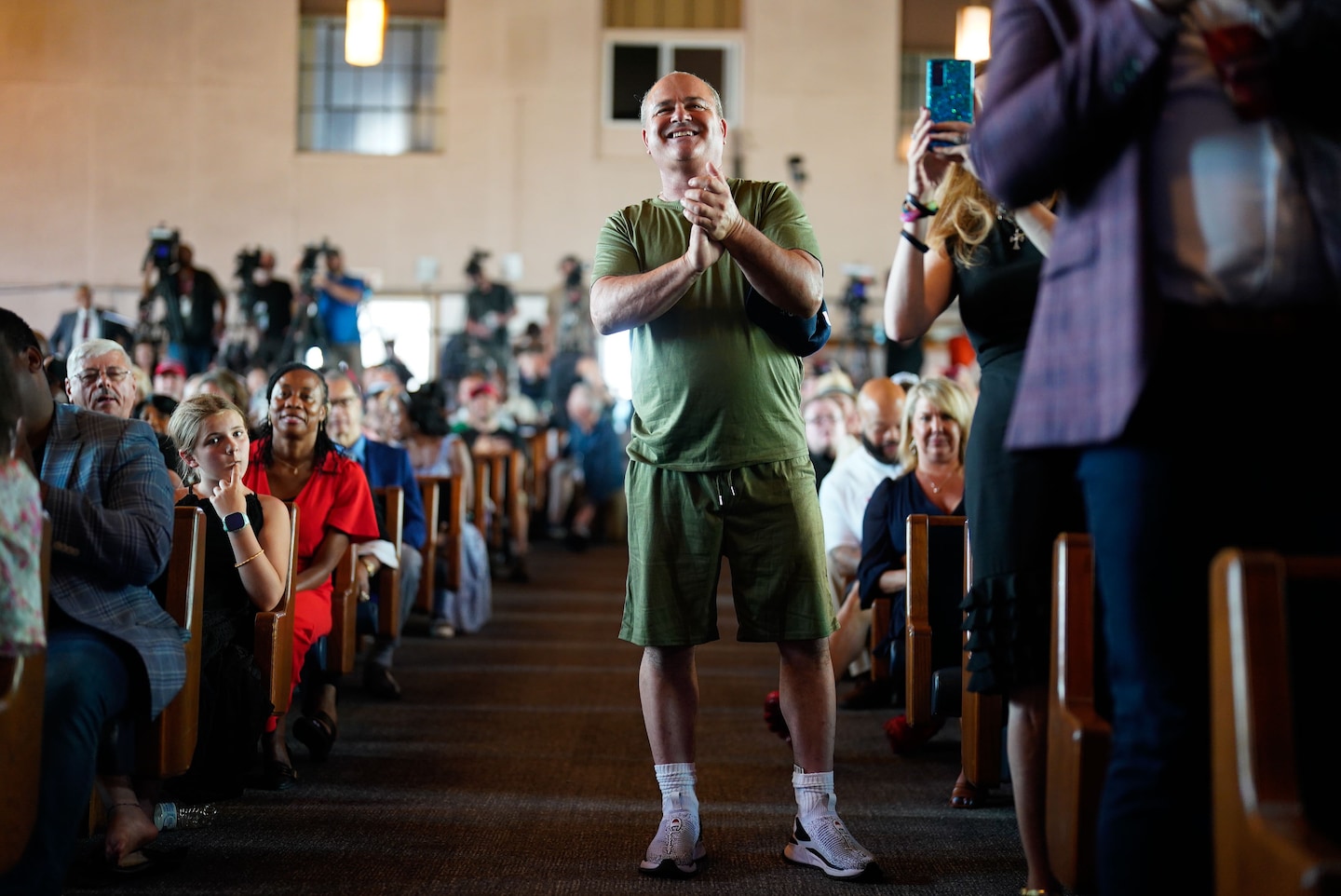
Trumpworld keeps overstating Trump’s support among Black voters
- Politics
- June 17, 2024
- No Comment
- 136
On Sundays, the church is a Black church. On this Saturday, less so.
But the style of Donald Trump and of Trump supporters is to always present his support as mind-boggling and exceptional, and so this support was.
“The presumptive GOP presidential nominee appealed to the mostly black crowd, by talking about the migrant crisis,” the New York Post’s print edition read, “while speaking at a policy and awareness roundtable at 180 Church.” The online story has been updated: “The presumptive GOP presidential nominee focused on black voters.”
This idea that Trump was speaking to the Black community in a Black space was common among his supporters. As might have been expected; the entire point of the exercise was to suggest that Trump is making inroads into traditionally Democratic political areas. It’s the same strategy that the campaign deployed when he held a rally in the Bronx: Gather together a modest crowd and then overhype the scale and importance of what happened.
It is true that current polling shows Trump faring better than he did with Black voters in 2020 and that the gap between his support and support for President Biden is far narrower than it was four years ago. But — as is the case with other apparent shifts since 2020 — that’s more a function of apathy about Biden than enthusiasm about Trump.
We have recent polling that allows us to demonstrate the point. YouGov recently completed national polling on behalf of the Economist that measured support among Black voters. Over the weekend, USA Today published polling conducted by Suffolk University that looked solely at Black voters in two swing states, Michigan and Pennsylvania.
Exit polling from 2020 (an admittedly imperfect measure) shows that Biden won among Black voters nationally and in those swing states by 75 points and 85 points respectively. Now, he leads by 49 points nationally, by 39 points in Michigan and by 45 points in Pennsylvania.
The polls suggest Trump has only added single-digit support. He’s up 8 points in Michigan (in a poll with a margin of error of 4.4 points) and up 4 points in Pennsylvania. Nationally, YouGov has Trump matching his support from 2020 exit polls. The difference is in Biden’s support, down 26 points nationally, and just under 40 points in the swing states.
In Michigan, only about half of Black Biden supporters say they’re very motivated to vote for him. In Pennsylvania, it’s about 60 percent. In both of those states, only about two-thirds of those who say they voted for him in 2020 indicate that they plan to again this year. Asked why their support has waned, the most common response was simply that Biden hasn’t done a good job as president. (In both states, some version of “has done a poor job” was twice as common a response as that Biden is too old or that the respondents opposed Biden’s foreign policy.)
The modest increase Trump sees in support among Black voters is in part a function of divides by age and gender. Younger Black voters in Michigan and Pennsylvania were less likely to support Biden and slightly more likely to back Trump. That was generally true for men as well.
That matches the extent to which voters view the candidates favorably. Younger and male Black voters were more likely to say they viewed Trump favorably than were older and female Black voters. Favorability of Biden didn’t vary much by gender.
Even among younger Black voters and Black men, though, Biden gets more support than Trump by a wide margin. It’s just not as wide as Biden’s campaign would hope and, in states that were among the closest on the map in 2020, that’s a source of concern for the incumbent.
It’s also not clear that Trump’s efforts to appeal to Black voters are particularly fruitful. (As we noted last week, it’s often the case that his pitches to constituent groups of voters follow shifts in support rather than driving them.) Suffolk University asked Black voters in Michigan and Pennsylvania if they agreed that Trump’s having been indicted made him a more appealing figure to Black people; the percentage who said it did matched Trump’s support overall. Most respondents said that the suggesting was offensive. That pattern held for Black men and younger Black respondents, too.
The question that arises from this polling is again a question that’s familiar from the broader conversation about the 2024 election. Will Black voters eventually coalesce around Biden, widening the margin of support between the incumbent and Trump? Or will many Black voters, disenchanted with Biden’s presidency, stay home? It’s important to note the favorability numbers above: Trump is viewed broadly negatively, even among groups of Black voters where he fares better. It’s less that Black voters are demanding President Trump than that they are frustrated with President Biden.
It’s important for Trump to present his campaign as the target of enthusiastic Black support for a few reasons. The first is that it pushes back against the idea that his candidacy and rhetoric should be unacceptable to non-White voters, creating space for more Black and Hispanic voters to express their support. The other is that it serves as a rebuttal to the idea that Trump himself espouses racist ideas: How could that be true, when he has so many Black friends supporters?
Incidentally, Suffolk’s poll of Black voters in Michigan found that regular churchgoers backed Biden by a wider margin than did those who never attend religious services. Among those who attended a Trump event at a Black church on a Saturday, though, it’s safe to say that Trump overperformed.
#Trumpworld #overstating #Trumps #support #among #Black #voters









